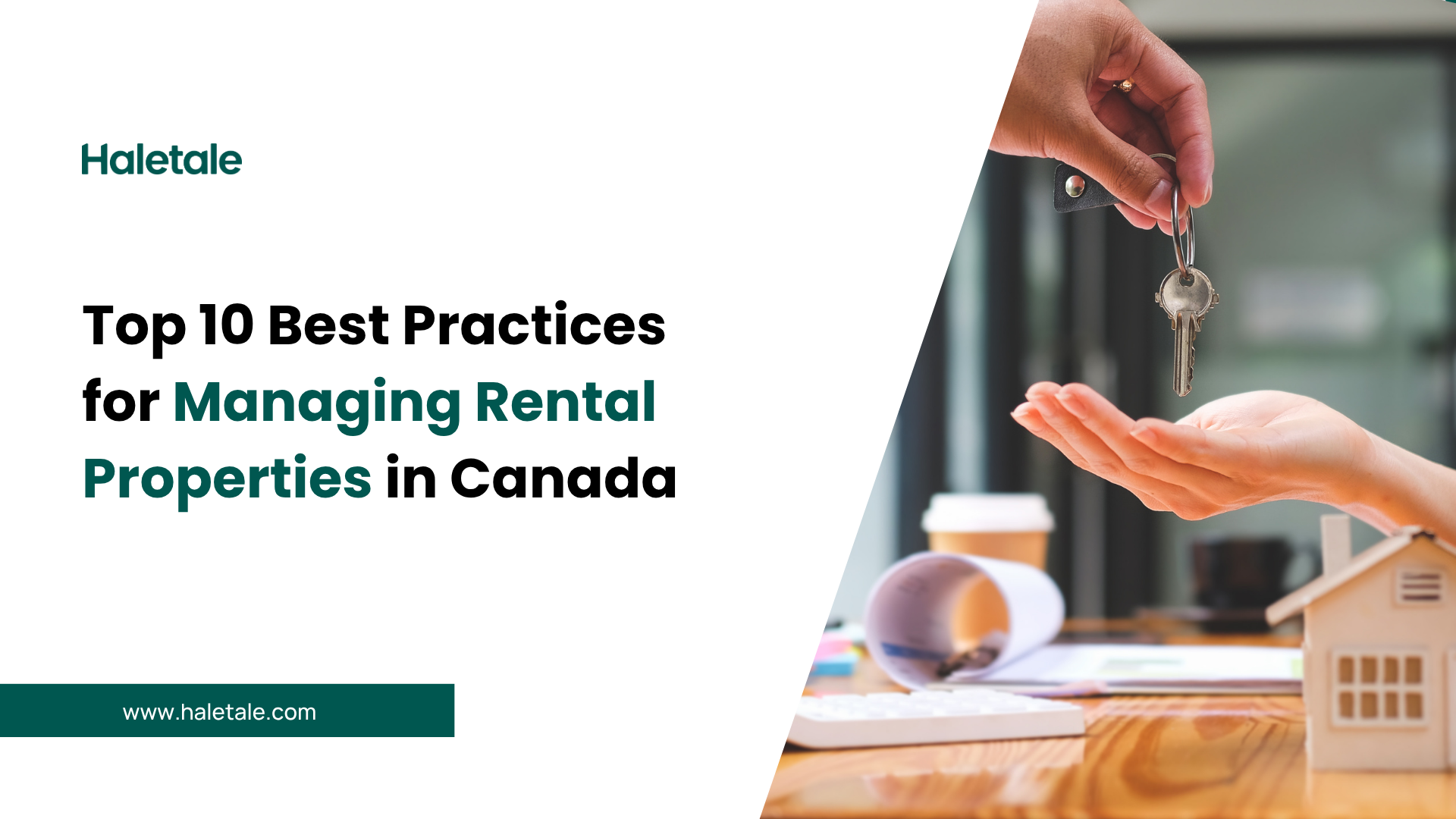Top 10 Best Practices for Managing Rental Properties in Canada
1. Know Your Legal Responsibilities for managing Rental Properties in canada
Familiarize Yourself with Landlord-Tenant Laws
- Rent Control Laws: Understand annual rent-increase limits in your province.
- Eviction Procedures: Follow the legally required steps and notice periods.
- Repair Obligations: Know what must be maintained and the required response times.
Have a Solid Lease Agreement
- Payment Terms: Specify when and how rent is due.
- Maintenance Responsibilities: Clarify who handles routine upkeep and major repairs.
- Eviction Terms: Outline conditions and processes for terminating the lease.
2. Foster Good Communication with Tenants
Always Be Accessible
- Provide multiple contact methods (phone, email, text).
- Respond promptly to demonstrate you value tenant concerns.
Set Clear Expectations Upfront
- Rent Payments: State due dates and late-payment consequences.
- Maintenance Requests: Explain how to report issues and expected response times.
3. Stay on Top of Maintenance
Don’t Wait for Things to Break
- Schedule seasonal inspections (HVAC, plumbing, roofing).
- Routinely check common areas for wear and tear.
Be Proactive About Repairs
- Conduct regular walk-throughs to catch small issues early.
- Create a yearly maintenance calendar and stick to it.
4. Set and Collect Rent on Time
Automate Rent Collection
- Use online payment systems with auto-pay options.
- Send automated reminders before due dates.
Be Clear About Late Fees
- Specify fee amounts and when they apply.
- Note any grace period offered.
5. Screen Tenants Carefully
Perform Background Checks
- Run credit checks to gauge financial reliability.
- Verify rental history with previous landlords.
Interview Candidates
- Meet applicants in person or via video call.
- Ask about employment stability and move-in timeline.
6. Understand the Local Market
Research Rental Rates
- Compare similar properties to set competitive prices.
- Monitor local trends to adjust rates strategically.
Consider Seasonal Demand
- Focus marketing during peak moving seasons (spring/summer).
- Offer incentives during slower months to attract tenants.
7. Handle Tenant Complaints Professionally
Listen First
- Allow tenants to fully explain concerns before responding.
- Take notes to ensure every point is addressed.
Address Problems Promptly
- Resolve issues quickly to prevent escalation.
- Follow up to confirm tenant satisfaction.
8. Protect Your Investment with Insurance
Get the Right Coverage
- Property Insurance: Covers fire, theft, and vandalism.
- Liability Coverage: Protects against injury claims on the property.
Encourage Tenants to Get Renters’ Insurance
- Reduces liability for tenant belongings.
- Provides peace of mind for both parties.
9. Know When to Raise Rent
Follow Local Rent Control Laws
- Stay within legal limits for annual increases.
- Document reasons for any rent adjustments.
Give Proper Notice
- Provide 30–90 days’ written notice as required.
- Explain the rationale to maintain transparency and trust.
10. Keep Accurate Records
Track All Transactions
- Document rent payments and late fees.
- Maintain receipts for repairs and upgrades.
Use Property Management Tools
- Centralize data (rent, maintenance, leases) in one platform.
- Automate reminders, reporting, and document storage.
Conclusion
By following these best practices, Canadian property managers can ensure smoother, more profitable operations while fostering strong tenant relationships.
Partner with Haletale
Looking for extra support? Haletale offers an all-in-one property management platform that simplifies rent collection, maintenance tracking, and tenant communications—so you can focus on maximizing returns.
Explore Haletale’s Rental Market Analysis in Canada — Boost ROI with Data-Driven Strategies









